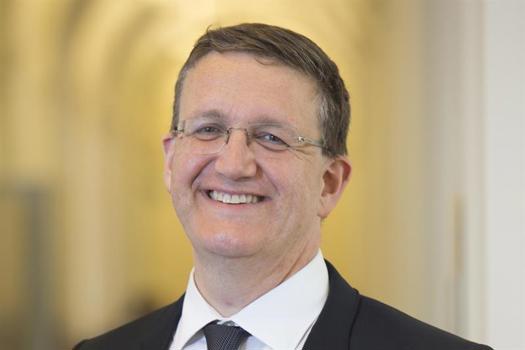Leaders mustn’t forget the simple things when it comes to D&I, according to Sue Owen, Civil Service diversity champion and permanent secretary at the Department for Digital, Culture, Media and Sport.
Speaking at The Whitehall & Industry Group Diversity & Inclusion Conference, attended exclusively by HR magazine, Owen said that while efforts to better include minority groups such as women and BAME colleagues are important, so too is avoiding “grade-ism”.
“Quite a lot of exclusion is grade-ism,” she said. “It’s small-sounding things like the way someone is asked to do something. It’s just language and being polite and saying thank you and valuing people.”
Part of this is about working towards a “no blame culture”, a particularly important challenge at the Civil Service, she said. “It’s really important leaders pitch in and help sort things out [when they go wrong] without pointing the finger,” she said. “Because as soon as you have a blame culture people feel excluded.”
Also delivering a keynote at the conference was Ian Stuart, UK CEO of HSBC. He agreed that “it’s about how we do things [as leaders]… saying thank you and sorry”. Stuart stressed the importance of leaders showing vulnerability and admitting their faux pas. “I’m on a massive learning journey,” he said. “Just as I think I’m getting there something will jump out and knock me back.”
He added: “I don’t think I live it [inclusive behaviours] every single day. I get caught up and my behaviours slip a bit. I want people to be comfortable calling me out on that. I’ll only be embarrassed, I won’t be annoyed.”
Stuart admitted HSBC has a long way to go to be truly inclusive. “We’ve had diversity targets on score cards for five years, but the impact has been not nearly enough,” he said, citing the example of there only being two wheelchair users among a 12,000-strong workforce at Canary Wharf.
Owen said the Civil Service also still has far to go. While it’s made strong progress on gender, with the number of women in senior Civil Service now 42% (up from 16% in 1995), BAME representation at senior level is only 4.6%, and disabled representation 3.4% (unchanged for seven years).
Owen shared figures on bullying and harassment, with LGBTI and disabled colleagues reporting this particularly strongly (28% of disabled people feel discriminated against and 23% feel bullied or harassed).
Owen said getting leaders at all levels involved is crucial. “If you’re running one of our call centres it’s not always obvious to you why D&I is important,” she said. “There’s probably a lot of bad behaviour and bullying in those places because people are so performance-driven.”
Other key steps being taken are: a publicly-published D&I data dashboard for each department, every leader being given D&I objectives, and work to define socio-economic status as a diversity characteristic. Owen is also exploring the possibility of measuring and benchmarking inclusion rates more consistently across different organisations.
She stressed the critical “business case” for D&I at the Civil Service: “For a long time it was the moral case that this was the right thing to do.
“But particularly over the last five years we’ve been realising that if you’re working on benefits for disabled people, for example, you need to have some disabled people in the team… It’s really important your workforce represents the people you serve.”
“If we’re going to relate to our customers we have to mirror them,” agreed Stuart, adding that if you only hire “white males”, “you’re taking yourself out of 70% of the global talent pool… I can’t afford that,” he said.









